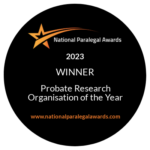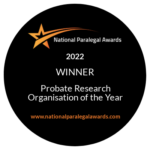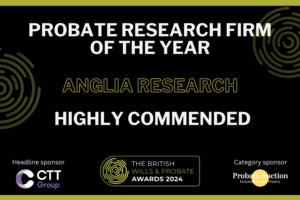What Is the Unclaimed Estates List?
When an individual passes away, anything that they leave behind is generally referred to as their estate. This can include everything from personal belongings and assets – including digital assets – to property and money that the individual owned at the time of their death.
In England and Wales, usually the estate will be passed to beneficiaries as outlined in the terms of a will left by the deceased. However, if no valid will has been left nor any living relatives can be found then the estate will go on the unclaimed estates list (if the estate is valued at £500 or more).
The following is a short guide on the unclaimed estates list in England and Wales, what happens to them, and who can claim them.
What is an unclaimed estate?
An unclaimed estate is where a person has died intestate (without a valid will) and there are no known family members to claim it. This can also happen in cases where there is a will, but all listed beneficiaries are deceased with no surviving relatives to take their place. In England and Wales, the Bona Vacantia Division (BVD) of the Government Legal Department administers such estates. We shall use the abbreviated “BVD” here for the reader’s convenience.
What happens to an unclaimed estate?
In such cases, the BVD places it on the official unclaimed estates list. This list of unclaimed estates in England and Wales and is updated every day and, if not claimed, each estate remains on the list for 30 years after the individual’s date of death. The details listed are limited, typically consisting of the deceased’s name, place of birth, place of death, marital status, and other limited personal information, plus the details of the informant.
During the period that the estate is listed, anyone can contact the government’s BVD and make a claim, but they must prove their entitlement, with all claims needing to be verified in detail. The claim must also include a family tree showing how the claimant is related to the deceased.
In the rare scenarios where no valid claim to the estate is made during the defined time period, it is removed from the list permanently and becomes owned by the Crown. For estates located in Cornwall or Lancaster, the estate goes to the relevant royal Duchy of which there are two in England – the Duchy of Cornwall and Duchy of Lancaster.
Who is entitled to make a claim for an unclaimed estate?
As there is no valid will in place in these cases, the rules of intestacy must be followed which is a pre-defined legal hierarchy of blood relatives. The classes in descending order of relevance are:
- husband, wife or civil partner
- children, grandchildren, great-grandchildren and so on (including adopted children of the deceased or adoptive family if the deceased was adopted)
- mother or father
- brothers or sisters who share both the same mother and father or their children (nieces and nephews)
- half-blood brothers or sisters or their children (nieces and nephews of the half-blood or their children)
- grandparents
- uncles and aunts or their children (first cousins or their descendants)
- half-uncles and aunts or their children (first cousins of the half-blood or their children)
How do you claim for an unclaimed estate?
If you believe you have a legal right to an unclaimed estate, you or your chosen representative will need to contact the Bona Vacantia Division of the government and complete an in-depth claim.
You will need to provide full proof of your relationship to the deceased including a detailed family tree showing dates of birth, marriage and death. You will also need to provide supporting evidence like certificates plus items of formal identification such as driver’s licences and passports.
If there are any potential discrepancies in your claim, you will need to provide evidence to clarify them. It is a far from straightforward process and there is no guarantee that your claim will ultimately be successful.
How we can help
For many years we have assisted members of the public claim inheritances which they are entitled to but may not initially have even known about. We help entitled beneficiaries navigate the complex BVD process, locating and accessing records as required, and to get their claim accepted.
For assistance in pursuing your rightful claim from the government, we invite you to get in contact with our friendly and professional team.
Please note: Genealogists do not work for, or on behalf of, BVD but often make enquiries for relatives after estates are advertised.
2025 Anglia Research Services All Rights Reserved.
Anglia Research and Anglia Research Services are trading names of Anglia Research Services Limited, a company registered in England and Wales: no. 05405509
Marketing by Unity Online










